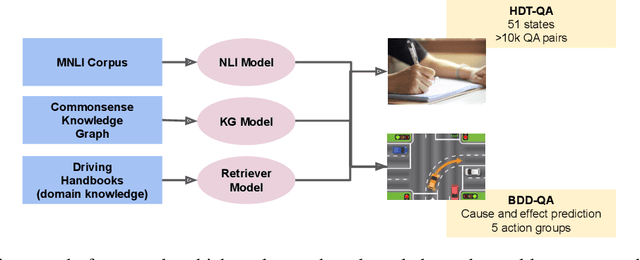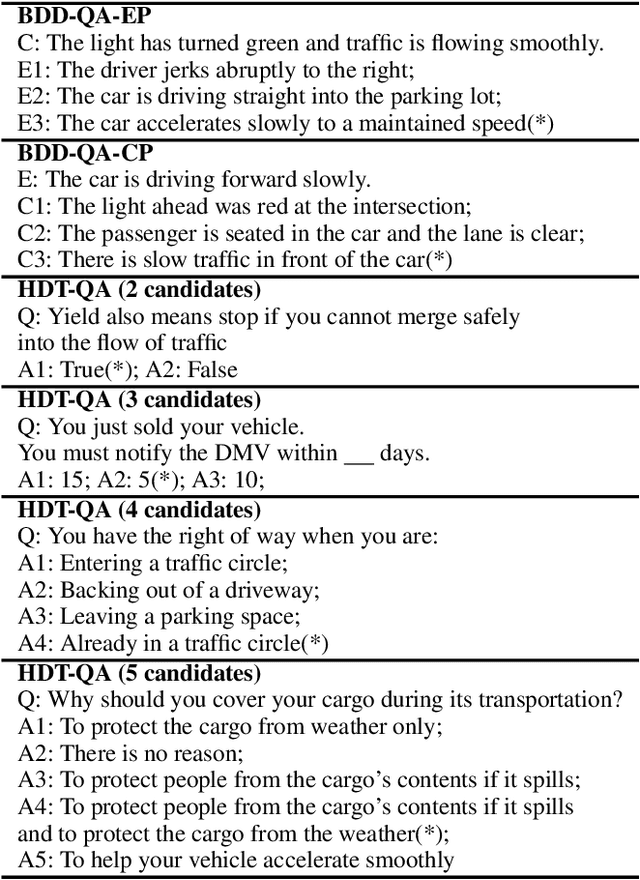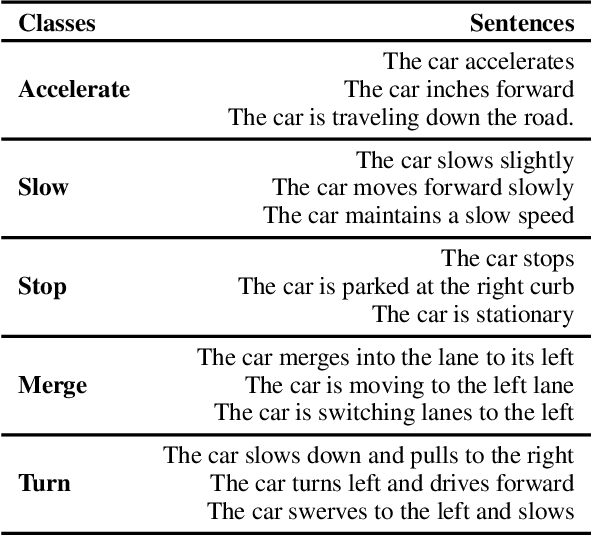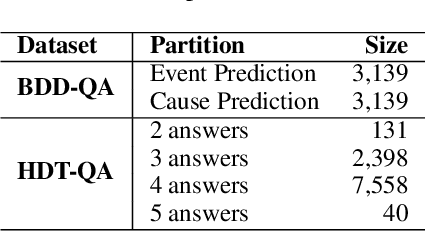Utilizing Background Knowledge for Robust Reasoning over Traffic Situations
Paper and Code
Dec 04, 2022



Understanding novel situations in the traffic domain requires an intricate combination of domain-specific and causal commonsense knowledge. Prior work has provided sufficient perception-based modalities for traffic monitoring, in this paper, we focus on a complementary research aspect of Intelligent Transportation: traffic understanding. We scope our study to text-based methods and datasets given the abundant commonsense knowledge that can be extracted using language models from large corpus and knowledge graphs. We adopt three knowledge-driven approaches for zero-shot QA over traffic situations, based on prior natural language inference methods, commonsense models with knowledge graph self-supervision, and dense retriever-based models. We constructed two text-based multiple-choice question answering sets: BDD-QA for evaluating causal reasoning in the traffic domain and HDT-QA for measuring the possession of domain knowledge akin to human driving license tests. Among the methods, Unified-QA reaches the best performance on the BDD-QA dataset with the adaptation of multiple formats of question answers. Language models trained with inference information and commonsense knowledge are also good at predicting the cause and effect in the traffic domain but perform badly at answering human-driving QA sets. For such sets, DPR+Unified-QA performs the best due to its efficient knowledge extraction.
 Add to Chrome
Add to Chrome Add to Firefox
Add to Firefox Add to Edge
Add to Edge